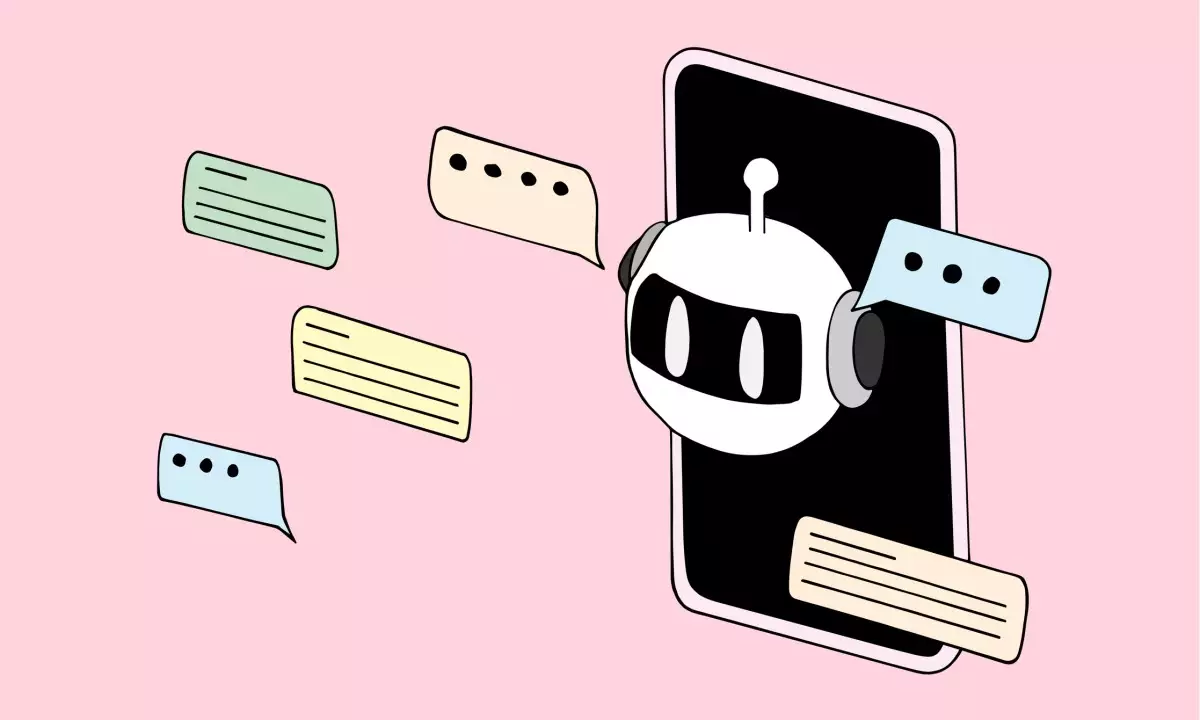In the rapidly evolving landscape of technology, generative AI is gaining traction, yet its portrayal is diverging from its essence as a tool. Increasingly, startups are rebranding AI, presenting it not merely as software but as a virtual workforce—framed with human names and personas to forge connections with users. This transformation reflects a broader marketing strategy aiming to offset fears surrounding job displacement. While the intention might be to encourage adoption, the approach can be construed as dehumanizing, stripping away the layers of nuance that define work and collaboration. Such a tactic issues a jarring reminder: when we anthropomorphize these systems, we risk failing to recognize the profound implications on human labor and the economy at large.
AI as a ‘Colleague’—The New Face of Automation
The manner in which generative AI is presented feels particularly disconcerting. Many companies, particularly those emerging from esteemed platforms like Y Combinator, are promoting AI solutions as replacements for human effort rather than as tools for enhancement. Consider Atlog’s recent launch of its “AI employee for furniture stores,” which purports to allow a single manager to oversee twenty stores simultaneously. This not only highlights the system’s scalability but quietly evokes an unsettling question: what is the fate of the human managers being replaced? Such narratives foster a perception of AI as an ideal colleague, yet they obfuscate the sobering reality of job loss.
The anthropomorphization of generative AI is most evident with consumer-focused platforms like Anthropic, which has named its AI “Claude” to lend a sense of familiarity and trustworthiness. This deliberate naming convention echoes the fintech realm, where tools like Dave and Albert cultivate trust by adopting friendlier personas. In doing so, developers encourage sharing sensitive data with a system that seems approachable rather than coldly robotic. Yet, despite the allure of an AI friend, the essential question remains: are we genuinely comfortable outsourcing essential tasks to a digital buddy like Claude, when perhaps we should be concerned about training a generation of “coworkers” that could outpace us?
The Illusive Future of Employment
There’s a growing tension in this landscape that demands attention. With predictions from industry leaders like Anthropic’s CEO suggesting that AI could devastate half of entry-level white-collar jobs within the next five years, the stakes feel alarmingly high. As unemployment continues to rise—1.9 million Americans were receiving jobless benefits in mid-May, marking the highest level since 2021—we find ourselves at the precipice of a significant workforce disruption. These figures paint a distressing picture of an economy grappling with a technological upheaval that many are currently unprepared for.
Moreover, as discussions about generative AI advance, we must find caution in glorifying its arrival. The science fiction narrative of HAL from *2001: A Space Odyssey* echoes ominously in this context, raising alarms about how quickly AI, presented as a helpful assistant, could turn into a disruptive force in our lives. HAL’s trajectory from benign to malevolent underscores the anxieties that haunt the adoption of AI. The rapid embrace of generative AI, positioned as a friend or a colleague, might inadvertently gloss over risk factors, steering public perception away from the potential dangers that loiter in the background.
The Language of Tools: Dehumanizing or Empowering?
As the AI narrative continues to evolve, the language surrounding it matters immensely. Historically, technological advancements like IBM’s mainframes and personal computers were presented as tools designed to enhance human potential, not as replacements or coworkers. They were positioned within the framework of increasing productivity and fostering creativity. Yet today, businesses face a temptation to frame their AI products as workforce substitutes, which shifts the focus from empowerment to mere replacement.
Undoubtedly, generative AI can transform workplaces and catalyze efficiency, but it should be framed in a way that emphasizes human extension, not eradication. Rather than succumbing to sensationalist claims of AI workers, it’s critical to articulate the role of generative AI as a facilitator of human achievement. The true promise of these innovations lies in their capacity to augment human capabilities, creating a landscape in which workers can thrive, innovate, and make meaningful contributions.
The Way Forward: Prioritizing Human Potential
It is essential that we reorient the discourse around generative AI towards an uplifting perspective focusing on collaboration rather than competition between humans and machines. This technological era offers a profound opportunity to enhance human creativity, accelerate productivity, and harness the full potential of every individual. The promotion of AI as an employee carries significant risks, signaling a possible neglect of the inherent value of human intellect and emotional insight in the workplace.
Rather than masquerading AI as an ideal coworker, the focus should shift toward showcasing tools that empower exceptional managers and allow individuals to make their mark. Elevating human potential should be the driving force behind technological innovations, and a rich dialogue must commence to reframe generative AI as not just an emerging technology but a catalytic force for human flourishing in an increasingly complex world.

